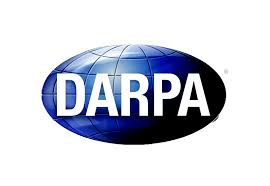
Breaking News
 Israeli Prime Minister, Netanyahu will meet with Trump on Wednesday and deliver instructions...
Israeli Prime Minister, Netanyahu will meet with Trump on Wednesday and deliver instructions...
 Elon Musk Offers To Cover Legal Bills Of Epstein Survivors Who Identify New Names
Elon Musk Offers To Cover Legal Bills Of Epstein Survivors Who Identify New Names
 Red Alert Emergency Broadcast! Tune In NOW As Alex Jones Analyzes The Insane Revelations...
Red Alert Emergency Broadcast! Tune In NOW As Alex Jones Analyzes The Insane Revelations...
 330 gallons of sulphuric acid was purchased for Epstein Island on the day the FBI opened...
330 gallons of sulphuric acid was purchased for Epstein Island on the day the FBI opened...
Top Tech News
 Drone-launching underwater drone hitches a ride on ship and sub hulls
Drone-launching underwater drone hitches a ride on ship and sub hulls
 Humanoid Robots Get "Brains" As Dual-Use Fears Mount
Humanoid Robots Get "Brains" As Dual-Use Fears Mount
 SpaceX Authorized to Increase High Speed Internet Download Speeds 5X Through 2026
SpaceX Authorized to Increase High Speed Internet Download Speeds 5X Through 2026
 Space AI is the Key to the Technological Singularity
Space AI is the Key to the Technological Singularity
 Velocitor X-1 eVTOL could be beating the traffic in just a year
Velocitor X-1 eVTOL could be beating the traffic in just a year
 Starlink smasher? China claims world's best high-powered microwave weapon
Starlink smasher? China claims world's best high-powered microwave weapon
 Wood scraps turn 'useless' desert sand into concrete
Wood scraps turn 'useless' desert sand into concrete
 Let's Do a Detailed Review of Zorin -- Is This Good for Ex-Windows Users?
Let's Do a Detailed Review of Zorin -- Is This Good for Ex-Windows Users?
 The World's First Sodium-Ion Battery EV Is A Winter Range Monster
The World's First Sodium-Ion Battery EV Is A Winter Range Monster
 China's CATL 5C Battery Breakthrough will Make Most Combustion Engine Vehicles OBSOLETE
China's CATL 5C Battery Breakthrough will Make Most Combustion Engine Vehicles OBSOLETE
DARPA Accelerates Tech Work On Human Enhancing Human Senses

DARPA, the research arm of the U.S. Department of Defense, awarded contracts to six teams working on developing better brain-computer interface technology. The goal, according to DARPA, is to repair and enhance the senses of those with disabilities.
REPAIRING AND ENHANCING
The U.S. Department of Defense is moving forward with its work on brain-computer interfaces (BCIs), with the Defense Advanced Research Projects Agency (DARPA) awarding contracts to five research groups and one private company on Tuesday.
BCIs have been around for a while now, but the potential for expanding their capabilities is relatively recent. The primary purpose of BCIs have been developing better neuroprostheses, which is also one of the visions of DARPA's Neural Engineering System Design (NESD) program. Through NESD, DARPA wants to develop high-resolution brain interfaces that could restore and enhance human senses.
"The NESD program looks ahead to a future in which advanced neural devices offer improved fidelity, resolution, and precision sensory interface for therapeutic applications," founding NESD program manager Phillip Alvelda said at the announcement, the Singularity Archive reports. Of the six awarded contracts, four will work on vision enhancement while the other two will focus on hearing and speech.
Back in 2016, DARPA announced that NESD will develop neural interface systems that will improve communication between the brain and the digital world. The idea is to convert electrochemical signals in the brain into the binary bits of zeros and ones used in computers. Braintree founder Bryan Johnson even thinks it's possible to make our neural code programmable through such systems.



